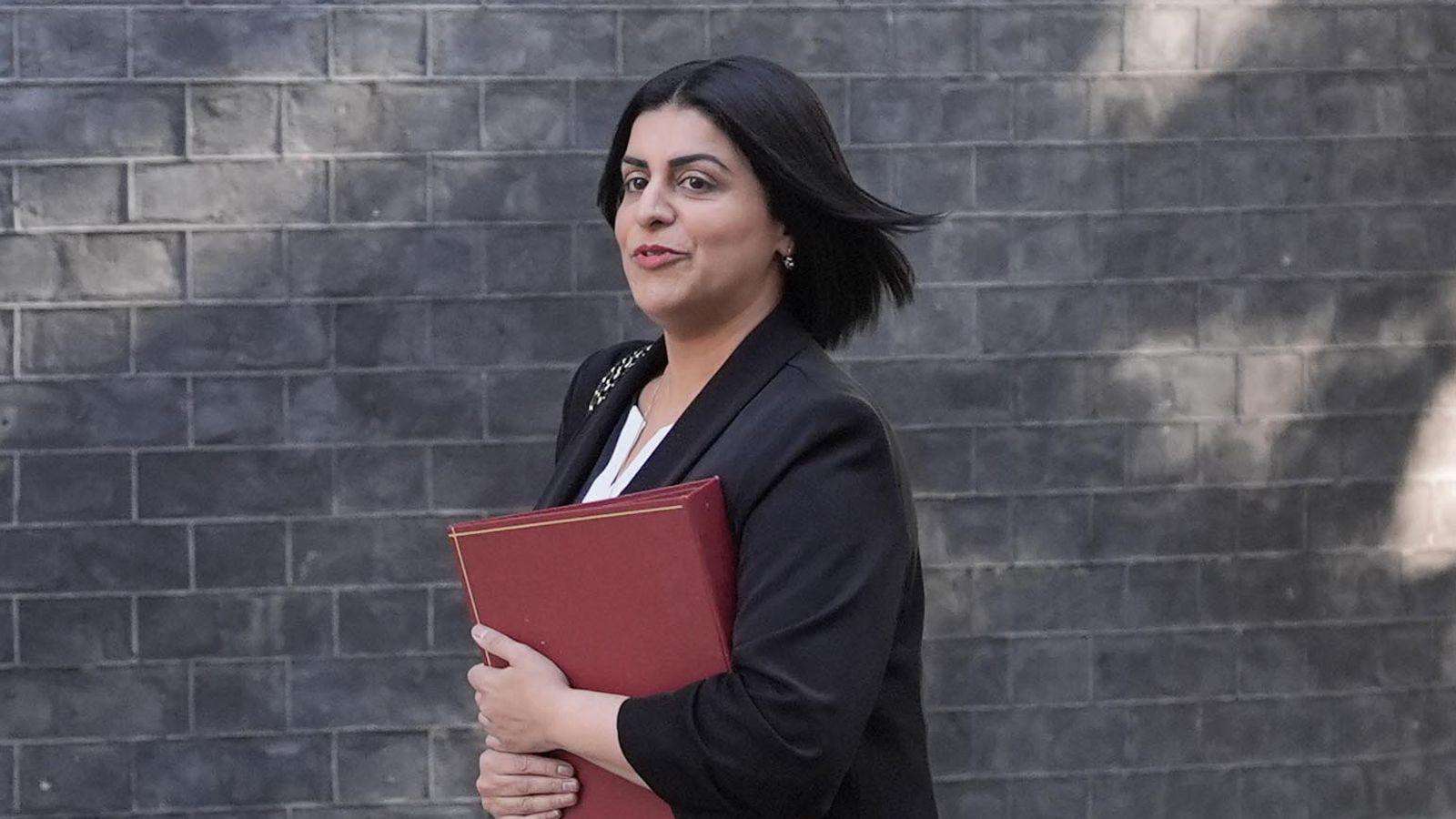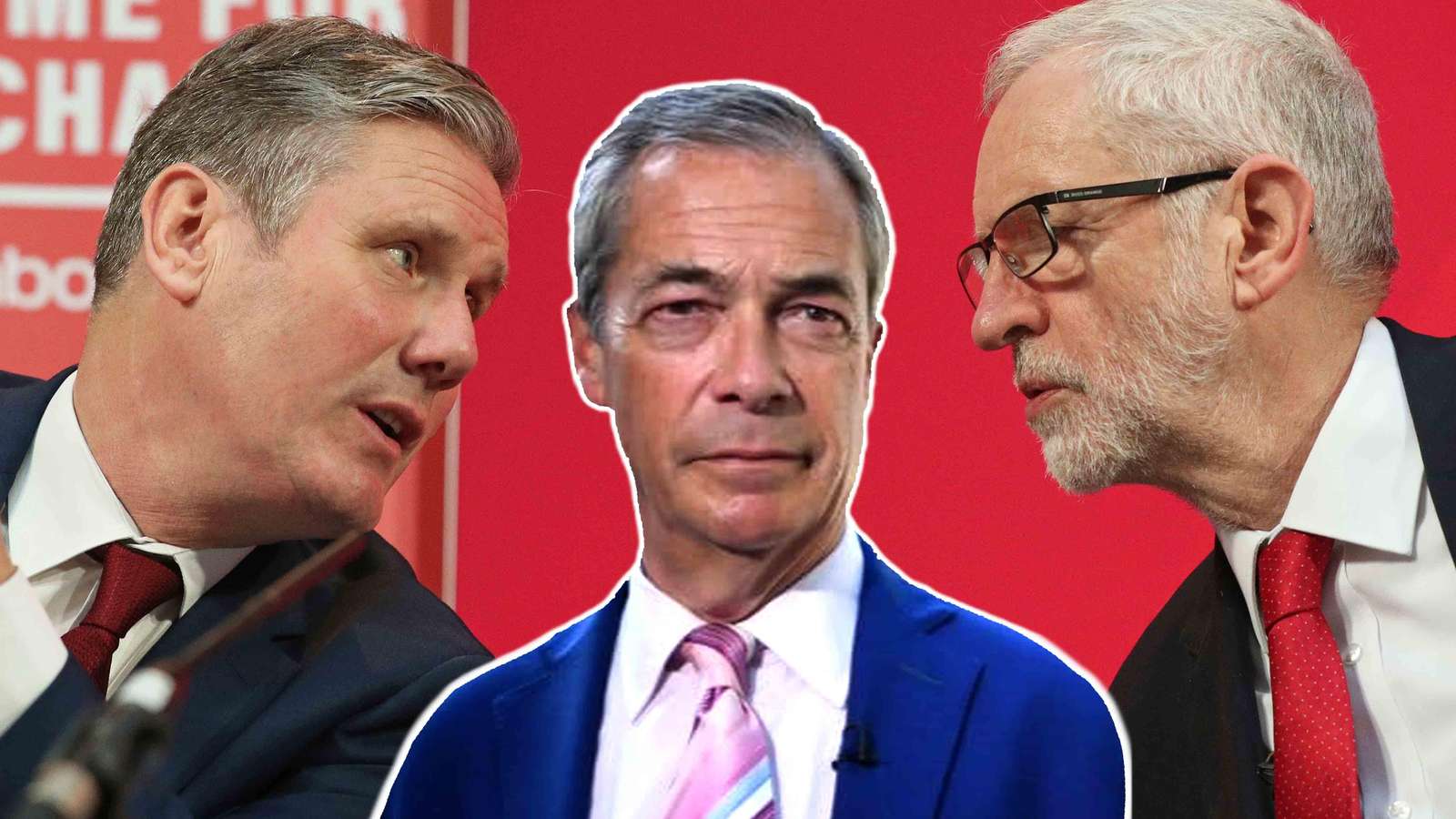The landscape of British politics is undergoing an unprecedented and rapid transformation, with recent polls indicating a monumental shift in voter sentiment. The conventional two-party dominance of Labour and Conservatives appears to be crumbling, replaced by a resurgent Reform UK under Nigel Farage, whose party is now projected to be the largest in a potential hung parliament. This dramatic reshaping raises critical questions about the future of Britain, the likelihood of an early election, and the complex allegiances of diverse communities.
Reform UK's Ascendancy and Labour's Decline
Recent Ipsos and YouGov polls paint a stark picture: Reform UK has not only surpassed both Labour and the Conservatives in national polls but is also projected to secure the most seats in a general election. YouGov's MRP (Multi-Level Regression and Post-stratification) model suggests Reform UK could win as many as 271-290 seats, while Labour's projected seat count has plummeted to 126-178. This marks a significant reversal from Labour's landslide victory in the 2024 general election, which saw them secure a 174-seat majority.
Nigel Farage, the charismatic leader of Reform UK, is perceived by voters as being more in touch with ordinary people, paying greater attention to detail, and being a stronger leader than current Prime Minister Sir Keir Starmer. While Starmer retains a slight edge in perceived honesty, Farage's "personality" (favoured by over 50% of voters compared to 21% for Starmer) and leadership qualities are resonating deeply. This surge for Reform follows their strong performance in the May local elections, where they gained over 600 councillors and won the parliamentary seat of Runcorn and Helsby from Labour.
Meanwhile, Sir Keir Starmer's Labour government is grappling with a significant loss of popularity. Despite their previous large majority, ministers have struggled to pass key legislation due to discontent within their own ranks. Major policy reversals, such as elements of welfare reforms and the universal winter fuel payment, have further eroded public trust. The number of voters who believe Starmer understands the problems facing Britain has fallen by 18% since the last general election, and only a quarter believe Rachel Reeves will remain Chancellor by the next election.
The Fragmented Right and Emerging Left
The Conservative Party, now led by Kemi Badenoch, is facing a severe crisis. Projected to be reduced to as few as 46 seats, they would become the fourth-largest party, behind even the Liberal Democrats. Badenoch's leadership has yet to demonstrate significant potential to reverse this decline. While some Conservatives have floated the idea of a coalition with Reform UK to keep Labour out of government, Badenoch has firmly ruled out such an alliance, suggesting Reform seeks to destroy the Tories.
On the left, a new force is emerging. Former Labour leader Jeremy Corbyn, alongside former Labour MP Zarah Sultana and other independent MPs like Shockat Adam, Adnan Hussain, Ayoub Khan, and Iqbal Mohamed, has formed the "Independent Alliance." While initially an informal parliamentary grouping to gain speaking time, there are strong indications of a formal political party being launched in 2025, potentially co-led by Corbyn and Sultana. This new left-wing entity, open to 18% of Britons (particularly younger voters and former Green supporters), could further fragment the anti-Reform vote, especially impacting Labour's traditional base.
The Plans of Other Parties: Lib Dems and Greens
The Liberal Democrats and Green Party are also poised to play a significant role in a fragmented political landscape. YouGov's projections suggest the Liberal Democrats could see a substantial increase in seats, potentially reaching 81, making them the third-largest party. Their policy platform generally focuses on social liberalism, pro-Europeanism, and environmentalism. Key proposals include increased funding for local government, restoring Education Maintenance Allowance, building 150,000 new social homes annually, ending no-fault evictions, and implementing rent controls. They also advocate for predictable funding for personal care, a new Carer's Minimum Wage, and improved mental health services.
The Green Party, projected to gain several seats to a total of seven, emphasizes environmental protection and social justice. Their manifesto highlights increasing local government funding for a zero-carbon transition, restoring the Education Maintenance Allowance, providing social homes, and empowering local authorities to introduce rent controls. They also aim to transform the planning system to reduce environmental impact and ensure all new homes meet high energy efficiency standards with renewable energy installations. Both parties have shown willingness to collaborate in local alliances, and in some past general elections, they've refrained from standing candidates against each other to boost their collective chances.
The Prospect of a Coalition Government and Majority
Given the current polling data, a hung parliament appears highly probable, with no single party securing an outright majority. This significantly increases the likelihood of a coalition government.
- Who could be majority? Currently, no party is projected to win an outright majority. Reform UK, while projected to be the largest party, is still estimated to be short of the 326 seats required for a majority.
- Who could be lost more seats? The Labour Party is projected to lose the most seats, potentially over 200 from their 2024 general election result. The Conservative Party is also set for heavy losses, possibly reducing their representation to an unprecedented low.
The Influence of Diverse Communities
The voting patterns of ethnic minority communities, particularly the Muslim, British South Asian (British Bangladeshi, British Pakistani, British Indian), Nepali, Sri Lankan, and African communities, are becoming increasingly complex and crucial. Historically, Labour has enjoyed strong support from these demographics, leading the Conservatives by a significant margin. However, the 2024 election saw a fragmentation of this vote, with Labour experiencing losses in ethnically diverse constituencies, especially among British Muslim voters, due in part to the party's stance on international conflicts like Gaza.
While Labour still holds a lead among ethnic minority voters overall, their support among British Asians, particularly Muslims, has weakened compared to 2019. British Indian and Chinese voters, along with Hindus, were more likely to have voted Conservative in 2019. The emergence of independent candidates with strong community ties, particularly in areas with large Muslim populations, further complicates the traditional Labour stronghold.
London and Bangladeshi Populated Seats
London, a highly diverse and traditionally Labour-leaning city, will be a key battleground. While Labour has historically dominated in the capital, the surge of Reform UK and the emergence of new left-wing options could introduce volatility.
In Bangladeshi-populated East London seats like Bethnal Green and Bow, and other significant Bangladeshi communities in areas like Camden, Manchester, Oldham, Luton, and Cardiff, the vote could be particularly contested. These areas have historically shown strong allegiance to Labour. However, the discontent among some Muslim voters regarding Labour's national policies could lead to a shift towards independent candidates or the new left-wing parties. Turnout in these areas is often influenced by strong community networks and mobilization efforts. While Labour has traditionally been seen as more concerned with ethnic minority interests, the current political climate suggests that these communities may be more willing to explore alternatives that align with their specific concerns.
The upcoming period in British politics promises to be highly dynamic, with the traditional power structures being fundamentally challenged by new and emerging forces. The question of "who's hand Britain's future" remains deeply uncertain, pointing towards a period of potential instability and novel political alliances.








.svg)

